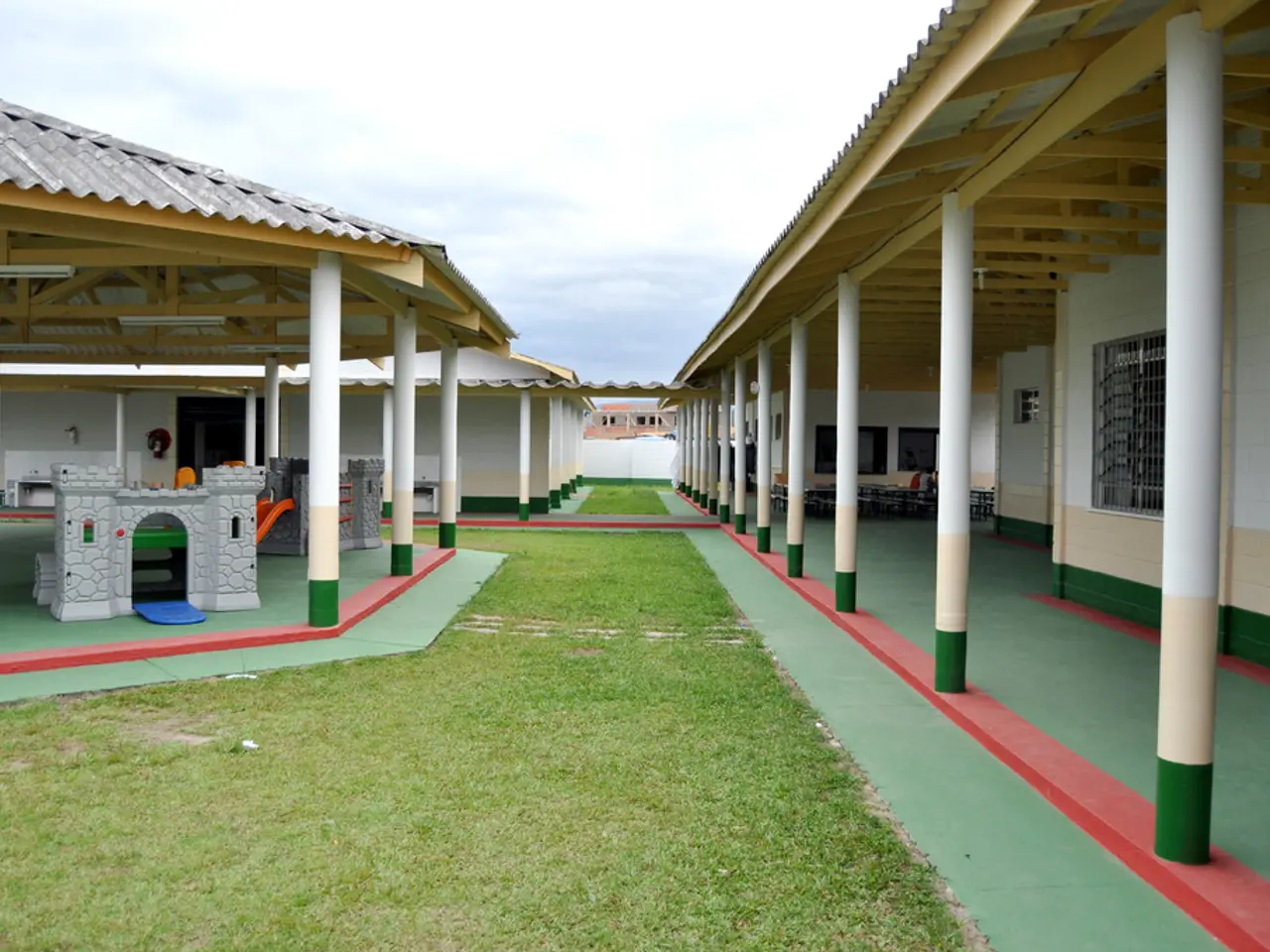Rising extremist views among the youth are being observed in Bremen's landscape.
A Sharp Rise in Young Right-Wing Extremism in Bremen: Causes, Consequences, and Potential Solutions
The surge of young right-wing extremists in Bremen's landscape isn't an isolated incident anymore. Groups like "Young and Strong" and "Weser-Ems-Action" are making an alarming comeback, and these radicalized individuals are primarily self-radicalizing through social media. This new face of extremism has raised concern among political figures, including Interior Senator Ulrich Maurer, who labels right-wing extremism as the gravest threat to democracy.
Last December, a viral video showcased "Weser-Ems-Action" members entering KUZ grounds on Sielwall, hanging left-wing political banners, and posing with them outside the Green Party headquarters, raising the racist "White Power" salute. It's jarring that the perpetrators are minors.
The increase in politically motivated crimes in Bremen by 26.8% underlines Maurer's concern. The city's Office for the Protection of the Constitution estimates the right-wing extremist potential at 220 individuals, with over half of them classified as violent. The most concerning aspect is the emerging pool of young suspects, with ages ranging from 14 to 18, even accused of assaulting refugee shelters.
Right-wing extremism is characterized by anti-democratic, anti-pluralistic, and anti-human rights sentiments. Politically motivated parties and social media play a significant role in escalating extremist views, providing fertile ground for radicalization. Events like the war following October 7, 2023, have fueled the spike in antisemitic and right-wing extremist incidents, contributing to heightened political tensions and polarization.
This upsurge in extremism among young people has led to a rise in antisemitic incidents, political and social destabilization, and the normalization of hate culture online. To counter these trends, it's crucial to implement a multi-faceted approach encompassing monitoring, legal measures, educational programs, online counter-speech, and community engagement.
Monitoring and legal action can involve the classification and banning of extremist organizations, while educational initiatives can promote democratic values, critical thinking, and media literacy to reduce susceptibility to radicalization. Cooperation between authorities, tech companies, and civil society is key for regulating extremist content online.
Providing support networks, counseling, and alternatives to extremist groups is vital in helping at-risk youth. Tailored programs engaging families, schools, and youth organizations, especially in Bremen, can help mitigate the impact of right-wing extremism.
In conclusion, the rise in young right-wing extremism in Bremen reflects broader national trends in Germany. To combat online radicalization and limit the influence of right-wing extremism, a combination of legal action, education, online regulation, and community-based prevention efforts are required.
- The alarming comeback of right-wing extremist groups in Bremen, like "Young and Strong" and "Weser-Ems-Action", mostly relies on social media for self-radicalization, exemplifying how technology can contribute to the spread of extremist views.
- Entertainment and general news platforms often provide content that contains veiled extreme ideologies, and events such as wars and conflicts can exacerbate right-wing extremism, as demonstrated by the escalation of antisemitic and extremist incidents following October 7, 2023.
- The rise in politically motivated crimes in Bremen, including assaults on refugee shelters, highlights the interconnections between crime and justice, politics, and social media in fostering a climate of extremism among young people, necessitating comprehensive solutions encompassing both online and offline measures.






